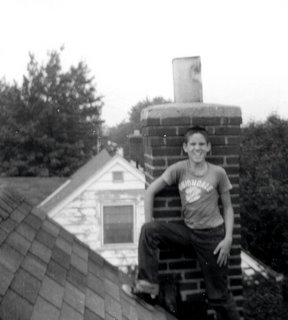This post is not facetious; I am struggling to understand. I am beginning to wonder if I might fall somewhere along the autistic spectrum as it is now conceived. I have a few close friends, but am very involved with my big family. Most of my abundant email is from my family. I am only truly myself with people I love. I am much more comfortable interacting with people on blogs than in real life. I would always chose reading a good book or watching TV and movies with my husband over attending a party.
I only had lots of friends when I lived in Manhattan; then I always bumped into them walking on the street and did not have to take the initiative. I am perfectly happy spending days alone, reading, writing, internet researching, visiting the library, gardening until my husband comes home. I don't know my neighbors except for a casual hello when we get out of our respective cars. Libraries are my version of paradise. I so appreciate that no one asks you if you need help.
My teachers only noticed me when I wrote my first composition; until then I was the quiet girl you might not realize was there. I recall one day that my kindergarten teacher called the roll and I said here, but she didn't hear me and marked me absent. I was much too shy to correct her, and had great difficulty the next day accounting for my absence because I had no note from my mom. Often my mother spoke for me when I was asked a question; I was too hesitant and took a long time to respond. My dad, who was like me, called her on that.
In the Catholic schools of my youth, with 60 students in a class, smart students who never talked in class, only answered questions but never asked them, wrote fine compositions and did well in tests, were praised. No one ever worried about them. I recall on rainy days we had to eat lunch in our classroom. We were permitted to talk, but I had taken to heart the rule about talking in class, and never said a word. How very weird I was!
My dad had a similar personality. His true nature only fully emerged in the three and one half years of love letters he wrote to my mom during the war. Reading the letters has been a revelation; I realize I never truly knew my dad. My mom was a vivacious extrovert; she never would have fallen in love with the shy, quiet man except that he wrote the best love letters I have ever read. Until my husband Peter came to America to marry me in 2001, we wrote and instant messaged to each other infinitely more than we were able to spend time together. So ours was a letter-writing romance as much as my parents had been.
All my 62 years I always recognized I was shy and introverted. I understood and felt far more comfortable with characters in books than with the people in my class or at my job. The seduction of mania is that my shyness and self-consciousness suddenly disappears. During my first manic episode, my brother Joe said: "My God, MJ, what happened. You sound just like mom." My father unhelpfully said, "Talk, talk, talk. What ever happened to Mary Jo, who was such a nice quiet girl." In real life I am a Mary, who pondered things in her heart. In my writing and when I am manic, my Joan persona emerges.
An essential part of taming my illness has been embracing and cherishing who I am. Manic Mary Joan is not my ideal self, is not the real me. Being a librarian was good for me because I had to talk to strangers, which I could do because they needed my help. A librarian is a anonymous handmaiden; people don't know her name. On the street, people would realize look familiar, but not be able to place me even if I had helped them numerous times. As a social worker, I worked well with clients one-on-one, but was terrified of conducting groups. As a La Leche league, I loved counseling mothers on the phone, but dreaded monthly meetings.
And yet I am secure that I have made a difference and am very happy I never was afflicted with another diagnosis. I am eager to read a new book: Shyness: How Normal Behavior Became a Sickness by Christopher Lane.






